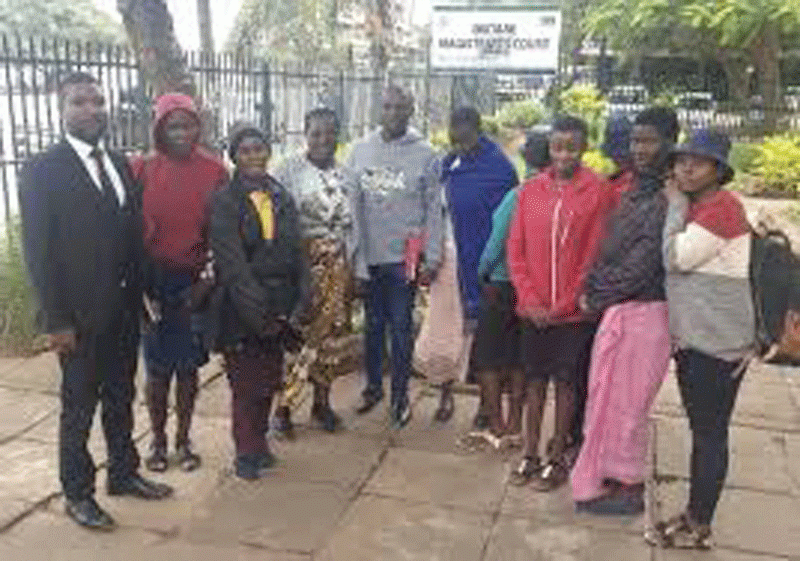
By Fred Zindi
Talk about shocking death, nothing hit me harder than hearing about the loss of Steve Kekana who died suddenly on July 1 from Covid-19-related complications at Pietersburg Provincial Hospital in South Africa.
He was aged 63.
I am left feeling utterly powerless in this inevitable human situation.
Although we had very little contact in the many years that I got to know him, I felt that I was always in touch with him through his music. I only visited him once in Johannesburg when Peter Tladi, a South African music promoter and jazz artiste took me to his home in 1989.
I first met Kekana in June 1982, when my friend’s organisation, JJ Promotions, run by Jeffery John Chavunduka, brought him to Harare. JJ Promotions were good at bringing South African acts to Zimbabwe. These included the likes of Brenda Fassie, Chicco and Chimora, Yvonne Chaka Chaka, Soul Brothers and many more.
After the increasing popularity of Kekana in South Africa, JJ also decided to bring this iconic artiste to Harare. His work in the 1980s and 1990s is an inextricable part of South Africa’s popular music. After he made the 1981 hit song Colour Me Black, (Colour Me White, You Can Colour Me InAnyway You Like) from the album Raising My Family, which resonated very well with Zimbabweans, he was invited to the country to give a performance. He was accompanied by his full band with three backing singers, who included the late Lucky Dube. They performed at the Queen’s Hotel, which was then owned by a Mr Bardolia and was a popular venue for visiting artistes from South Africa.
What amazed me the most about Kekana was that he was a blind singer who could play many instruments. I compared him with blind American singer, with a similar firstname, Stevie Wonder. Both singers were blessed with amazing voice ranges which according to modern scientists, prove that there is a relationship between being blind and the ability to sing at the right pitch. Scientists have alsoreported that blind people are up to 10 times better than sighted people at discriminating between pitches.
- Chamisa under fire over US$120K donation
- Mavhunga puts DeMbare into Chibuku quarterfinals
- Pension funds bet on Cabora Bassa oilfields
- Councils defy govt fire tender directive
Keep Reading
Such inspirational stories of high-profile blind musicians overcoming their physical obstacles to make their mark in history have long caused people to ponder whether there is a special relationship between music and blindness.
Although we sat together for a long time after his scintillating performance at Queens Hotel, I did not get the opportunity to write any notes about him as there were many music fans surrounding him at the hotel. Instead, I spent most of my time interviewing Dube who was busy playing me some of his demo-tapes with tracks he had recorded in South Africa. After listening to one of his reggae tunes, I remember advising him on becoming a reggae singer in his own right which he eventually did. When I saw Dube again in 1990, I reminded him that my advice had worked as he had now become a known reggae singer. He thanked me for that.
Among the people surrounding Kekana was Brian Rusike of the Mbare-based Pied Pipers Band. He insisted on playing to Kekana some of the songs they had released which included People Of The World Unite, African Woman and Reggae Sounds of Africa, which Kekana appreciated and later re-released some of these tracks in South Africa.
However, I later learned that “Tebogo” Steve Kekana (born August 4, 1958 in Transvaal) began his musical career in the 1980s.
He lost his sight at the age of five, and attended a school for the blind in Pietersburg. It was during his school years that he developed a love for singing, and became a member of amateur groups during his teenage years.
In 1979 and 1980, Kekana won what was then known as the SABC Black Music Award for best male vocalist. Kekana’s Raising My Family was also a big hit in Europe in 1980. In total, before his death, Kekana had recorded more than 40 albums. His songs The Bushmanand Feel So Strong (featuring Hotline) were hits on the Springbok Radio Chart (the semi-official South African chart of the time) reaching number 13 and number 6 in 1982 and 1983 respectively.
He worked with the likes of Ray Phiri, Nana Coyote, Joe Nina and Hotline, featuring PJ Thandeka Powers.
Kekana was a university graduate with B Juris and LLB degrees. He was an advocate and a lecturer in Labour Law at the University of South Africa. Before he died, he had received more than 70 Golden Disc Awards between 1978 and 2021.
Kekana as mentioned above, was an artiste of wide virtuosity. He was a singer, songwriter, a radio presenter and a lawyer. He was also an activist for the rights of artistes and for people living with disabilities. Kekana was one of the founding members of the Southern African Disabled Musicians’ Association.
Its chairperson John Mothopeng said Kekana’s death was a major loss. “We would all brag about him and his successes, encouraging others to look upon him as motivation. He was an asset and an intellectual,” he said.
Mothopeng added that Kekana was the association’s go-to legal person, assisting in formulating the constitution for the organisation
Many musicians and artistes were devastated by the shocking news of Kekana’s death.
Malatji, who has been Kekana’s producer and pianist since 2009, said he was paralysed by Kekana’s death because they were working on a new project that already had a name.
“I’m paralysed. I am left in the dark. We were working on a project in the studio. I don’t know what to say except we have not only lost a singer but we have lost the last healer we had,’’ he said.
Host of Straight Talk, Lethabo Ramokgopa, which runs online and was one of the last programmes to interview Kekana, said that her team was deeply saddened by his sudden passing as she still had major plans and work to do with the Limpopo giant.
“What will remain with us is his lifetime hits and sweet voice that never failed to melt even the hardest heart,” Ramokgopa said.
Limpopo MEC for Arts and Culture Thandi Moraka said she was shocked by the news.
“The death of bra Steve has left many of us in the province shocked. His contribution in the arts, particularly in music has left a void and he will never be forgotten. We send out heartfelt condolences to his family and fans,” she said.
Tributes, mainly from the African continent are still pouring in for the late legendary singer and songwriter, Steve Kekana.
From Malawi, Wycliffe Chimwendo had this to say: “Steve was an amazing artiste. I went to his concert in 1985 when he visited Malawi and that memory is still stuck on my mind. His song Ndimafuna Kuimba Nyimbo (I Just Wanna Sing) touched the chord of many Malawians.”
Francis Kalembera, also from Malawi said Steve was a healer and therapist. “I felt healed each time I played a Steve Kekana song especially the song Shine On.”
From Mozambique, Rufus Maculuve felt grieved by losing such an iconic legend. “He will be sadly missed”, he said.
In South Africa, Robert Marawa wrote: “What an incredible voice he had. I grew up listening to his music and my favourite was the one he did with Nana Coyote. He was special!”.
Former Wells Fargo Zimbabwean musician, Torera Mutinhimbira, who is now based in the United Kingdom and leads the Pan Afrikan Kultural Movement had this to say: “I was shocked by the news of Steve Kekana’s sudden death. He was not only an inspiration and role model to the blind but also to some of us sighted people. His demise is a huge loss to the world. We are going to miss him. Life is unfair, honestly.”
Thabo Sejane, a South African blind person devastated by the news of Kekana’s death remarked: “You were not disabled, but you were differently able. I first met with you when I was in Grade 6 in 2016 at Sibonile. I enjoyed when you called my name Thabo Sejane three years after I met with you. You are a symbol of positivity to us the blind people. You are a great singer and advocate we lost as the blind fraternity. You are an inspiration to us.You are our daily motivation.People believed in us through your achievements.”
The music fraternity in Zimbabwe join the rest of the country in expressing our sincerest condolences to the Kekana family and relatives during their time of bereavement. May his dear soul rest in eternal peace.
- Feedback: [email protected]











